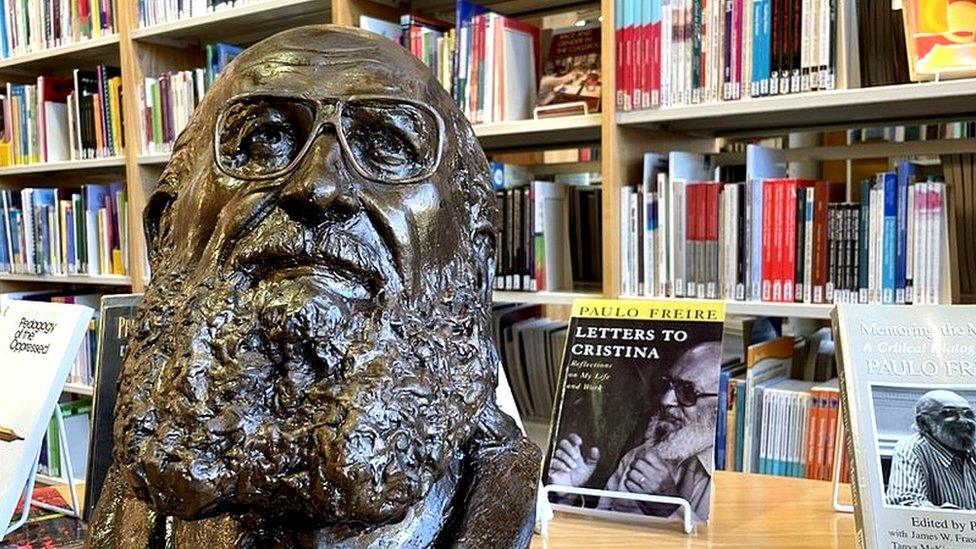'Eyesore' Prince Philip statue in Cambridge must go, says council
- Published
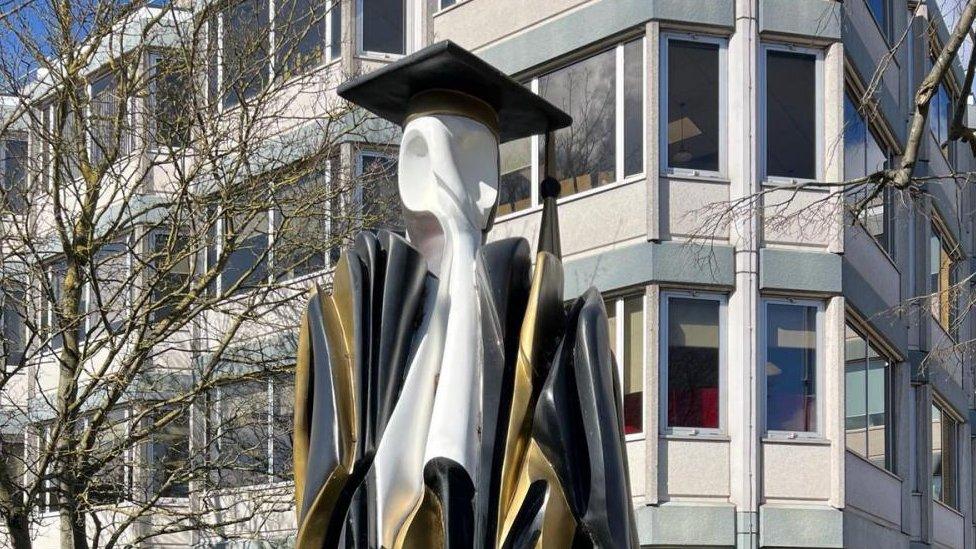
The Cambridge Don sculpture in Cambridge must go, a council says
A council has ordered the removal of an "eyesore" sculpture 10 years after it was refused planning permission.
The four-metre (13ft) bronze figure commemorates Prince Philip's 35 years as chancellor of Cambridge University.
Planners have told property firm Unex that the £150,000 statue, called The Don, on the city's Hills Road, appears to breach planning control.
Cambridge City Council said the firm had until 11 April to lodge an appeal against an enforcement notice.
The notice has been directed at Unex - plus a law firm and a property management company.
It said there appeared to have been a "breach of planning control" and the sculpture was "unauthorised" and must be removed by August.
The Cambridgeshire-based Unex Group has been approached by the BBC for comment.
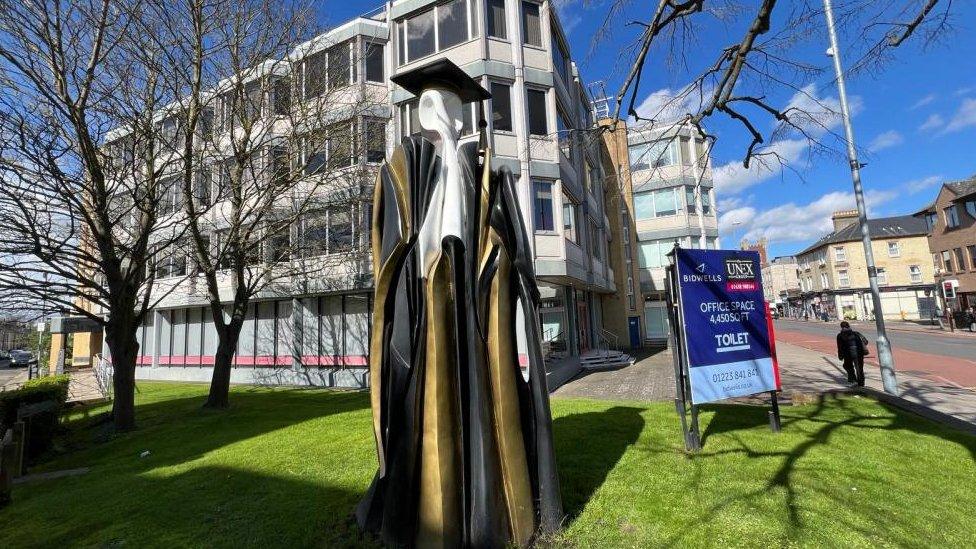
The Cambridge Don sculpture has been described as an "eyesore"
The Don appeared on land at Charter House last year, the council said on Wednesday.
The authority said previously it was "not clear exactly when the artefact was commissioned or when it was completed, but it has been in storage locally for some time."
The authority defended the refusal of planning permission, external for the sculpture, saying "the installation of the proposed artefact 'The Don' would have a negative impact on the character" of the area.
It also warned: "It is also likely that acceptance of this variation would make it more difficult to ensure that the environment in the city as a whole is enhanced by appropriate public art in the future."
In January 2014, the council's planning committee considered a planning application relating to the sculpture.
The committee was told that the sculpture was by Pablo Atchugarry and called The Don. Permission was refused.
A council public art co-ordinator was against the sculpture and said it was "possibly the poorest quality work that has ever been submitted to the council".
A spokesman from the council said on Wednesday that about five years ago the statue had "appeared" in a different location in Cambridge.
He said it had been moved to its current location on Hills Road "again without planning permission" in 2023. An enforcement notice had been issued earlier this month.
'Eyesore'
City councillor Katie Thornburrow described the statue, bearing a plaque naming the late Duke at its base, as "controversial".
"The figure, supposed to represent Prince Philip in his robes as vice-chancellor of Cambridge University with mortar board and tassel, is cast in bronze but painted black and white, with a twisted bronze abstract 'head'," she said on her website, external.
"It has been described as 'kitsch-like' and 'detritus masquerading as public art'," she added.
"I will be glad to see it gone, but remain angry that developers could just dump it in place and then force the council to spend officers' time and money getting them to take it away.
"We deserve better."
A local political commentator also said he had "never been a fan" of the Hills Road sculpture.
Phil Rodgers, a political commentator and former Liberal Democrat election agent, said the sculpture was an "eyesore".
He said in a tweet: "Fantastic news ... that an enforcement notice has been served to remove this eyesore in Hills Road."
He told the BBC: "I have to say I am not a fan."

Follow East of England news on Facebook, external, Instagram, external and X, external. Got a story? Email eastofenglandnews@bbc.co.uk or WhatsApp 0800 169 1830
Related topics
- Published23 March 2024
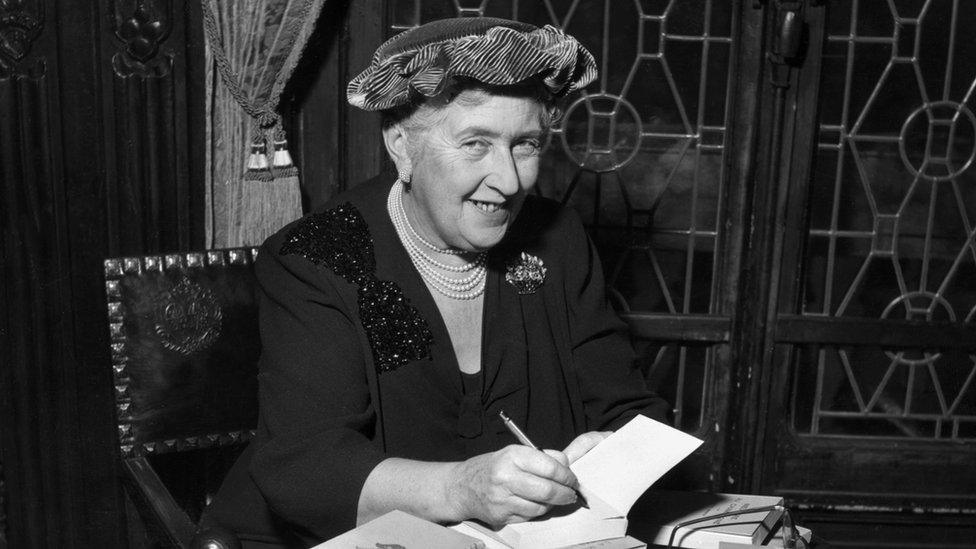
- Published22 January 2024
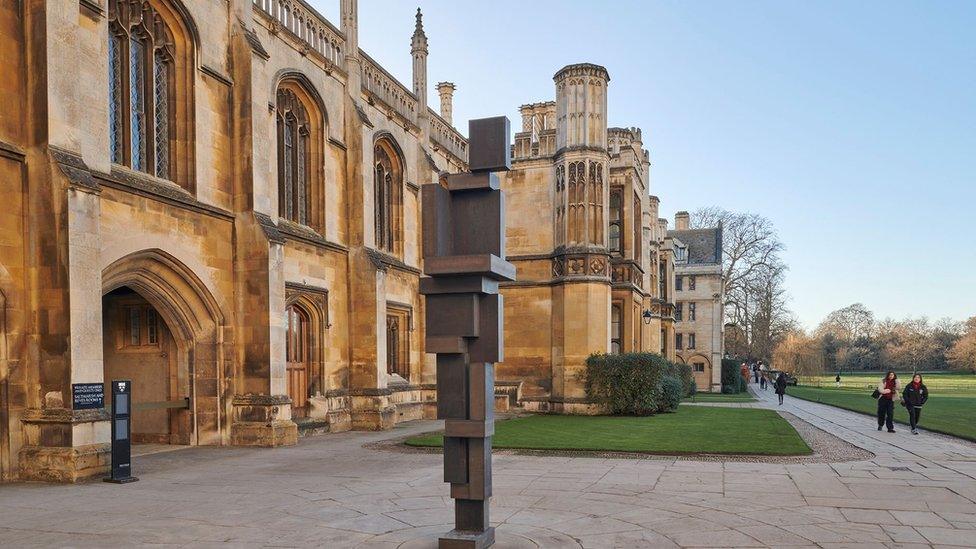
- Published26 November 2021
